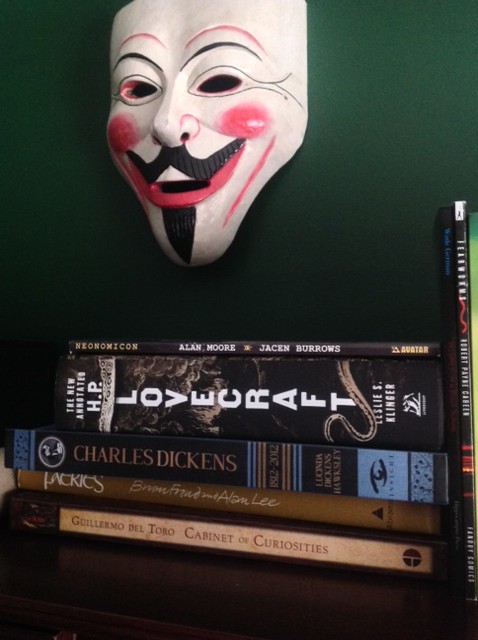Why has 50 Shades of Gray sold like crazy despite everyone of any relevance condemning it as a badly-written, badly-conceived infantile book unworthy of attention?
No one reads for style. Maybe a handful of us, sure, but mostly people read ONLY for plot-points, with a strong preference for a fourth-grade reading level in sentence and scene construction. Keep the vocabulary simplistic, with the occasional big word carefully explained so they can feel oh so smart. Best exemplar is the prose of Arthur Conan Doyle.
This means discussion of quality falls on not only deaf but ignorant ears. Readers do not know what we’re talking about. Oh, good readers do. Literate readers, that tiny group, they know, but the masses who make 50 Shades a big seller have no clue. Tad’s right, it’s not a zero-sum game, it’s just Gresham’s law, is the thing: Bad writing forces out the good writing.
That’s what worries me about the popularity of empty fakes like 50 Shades. ERB did not preclude PKD but Gerald Kersh is already forgotten and Harlan Ellison will be, once he actually croaks instead of taking about it.
What’s sad but true: the best boil off. They become “writers’ writers” and are known in tiny coteries of literate appreciators. Meanwhile the bad forces out the good, there being no room for it, no patience. Exploitative pulp will always sell wider and faster than quality.
So maybe we should stop grousing when sub-literate crap floats. Instead, decide: Are you commercial or serious in your writing? Can’t be both, they won’t let you. Those who mix in quality with popularity are the ones we tend to admire but it’s deucedly hard.
As an example, Dickens is far less sentimentalist than he’s so often charged with being. Yes, he did indeed address the masses in their concerns, and spoke for the common man. However, he did not write down to them. His prose is as eloquent, as high and pure as any; the public back then was far more apt to be largely illiterate but those who were literate were actually up to reading Dickens.
When his installments came out, people who could read would stand on boxes and read the work aloud to rapt listeners. His stories penetrated to the whole society the way addictive mini-series or binge-watched shows do now, despite being “too hard to read” as many modern students complain.
Read the Victorian newspapers, or try to, and you’ll see what I mean about the standards and levels of general literacy having been higher in Victorian times. Today’s readers cannot read the average front page of a Victorian newspaper meant for general consumption.
We’ve lost much by thinning and diluting literacy in order to spread it wider, and now we see the GOP destroying literacy and education so it can rule with impunity.
Back to the debtor’s prisons and indentured servants, etc. Slavery in the mines, child labor, etc. Will this also mean a return to writers writing for themselves and for the people, the readers, by-passing corporate editors and gatekeepers in order to shrug off limitations and controls?
Let’s hope so.
/// /// ///

